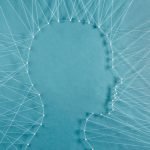Node Smith, ND
Getting up in the morning and immediately contemplating how stressful the day will be may be harmful to your mindset and cognition throughout the day, says Penn State researchers.1 This could be the truth behind “getting up on the wrong side of the bed. “
Working memory slows later in the day
Specifically, when participants of the study woke up experiencing feelings and having thoughts about the current day’s stressful events, working memory was slower later that same day. Working memory is the aspect of memory that helps individuals learn and store information. The effect of this anticipation of a stressful day occurred even when actual stressful events did not occur.
Researchers note that effects of stress begin before the stress has been experienced
The researchers point out that this study suggests that the effects of stress begin before an actual stress is experienced.
The study looked at 240 racially and economically diverse adults. The participants were followed for two weeks and responded 7 times daily to questions which were sent through a smartphone app. Questions were asked once in the morning, about their expectations on a stressful day, 5 times during the day and once at night about the expectation of the following day.
The use of the smartphone app allowed for more real-time data points to be gathered throughout the day than if participants were asked to go into a lab every day.
Anticipating stress in the morning was associated with lower levels of working memory later during the day
The results showed that anticipating more stress in the morning was associated with lower levels of working memory later during the day. However, anticipation of a future stressful day, ie the next day, did not associate with changes in working memory.
Researchers are currently working on wearable sensors
The researchers are currently working on wearable sensors that may be able to use this information to inform individuals of when their working memory is lacking, or prompt them to practice some sort of mindfulness exercise to re-frame their expectation of stress.
Source:
- Hyun J, Sliwinski MJ, Smyth JM. Waking Up on the Wrong Side of the Bed: The Effects of Stress Anticipation on Working Memory in Daily Life. J Gerontol B Psychol Sci Soc Sci. 2018
Image Copyright: <a href=’https://www.123rf.com/profile_yacobchuk’>yacobchuk / 123RF Stock Photo</a>
 Node Smith, ND, is a naturopathic physician in Portland, OR and associate editor for NDNR. He has been instrumental in maintaining a firm connection to the philosophy and heritage of naturopathic medicine among the next generation of docs. He helped found the first multi-generational experiential retreat, which brings elders, alumni, and students together for a weekend camp-out where naturopathic medicine and medical philosophy are experienced in nature. Four years ago he helped found the non-profit, Association for Naturopathic ReVitalization (ANR), for which he serves as the board chairman. ANR has a mission to inspire health practitioners to embody the naturopathic principles through experiential education. Node also has a firm belief that the next era of naturopathic medicine will see a resurgence of in-patient facilities which use fasting, earthing, hydrotherapy and homeopathy to bring people back from chronic diseases of modern living; he is involved in numerous conversations and projects to bring about this vision.
Node Smith, ND, is a naturopathic physician in Portland, OR and associate editor for NDNR. He has been instrumental in maintaining a firm connection to the philosophy and heritage of naturopathic medicine among the next generation of docs. He helped found the first multi-generational experiential retreat, which brings elders, alumni, and students together for a weekend camp-out where naturopathic medicine and medical philosophy are experienced in nature. Four years ago he helped found the non-profit, Association for Naturopathic ReVitalization (ANR), for which he serves as the board chairman. ANR has a mission to inspire health practitioners to embody the naturopathic principles through experiential education. Node also has a firm belief that the next era of naturopathic medicine will see a resurgence of in-patient facilities which use fasting, earthing, hydrotherapy and homeopathy to bring people back from chronic diseases of modern living; he is involved in numerous conversations and projects to bring about this vision.





